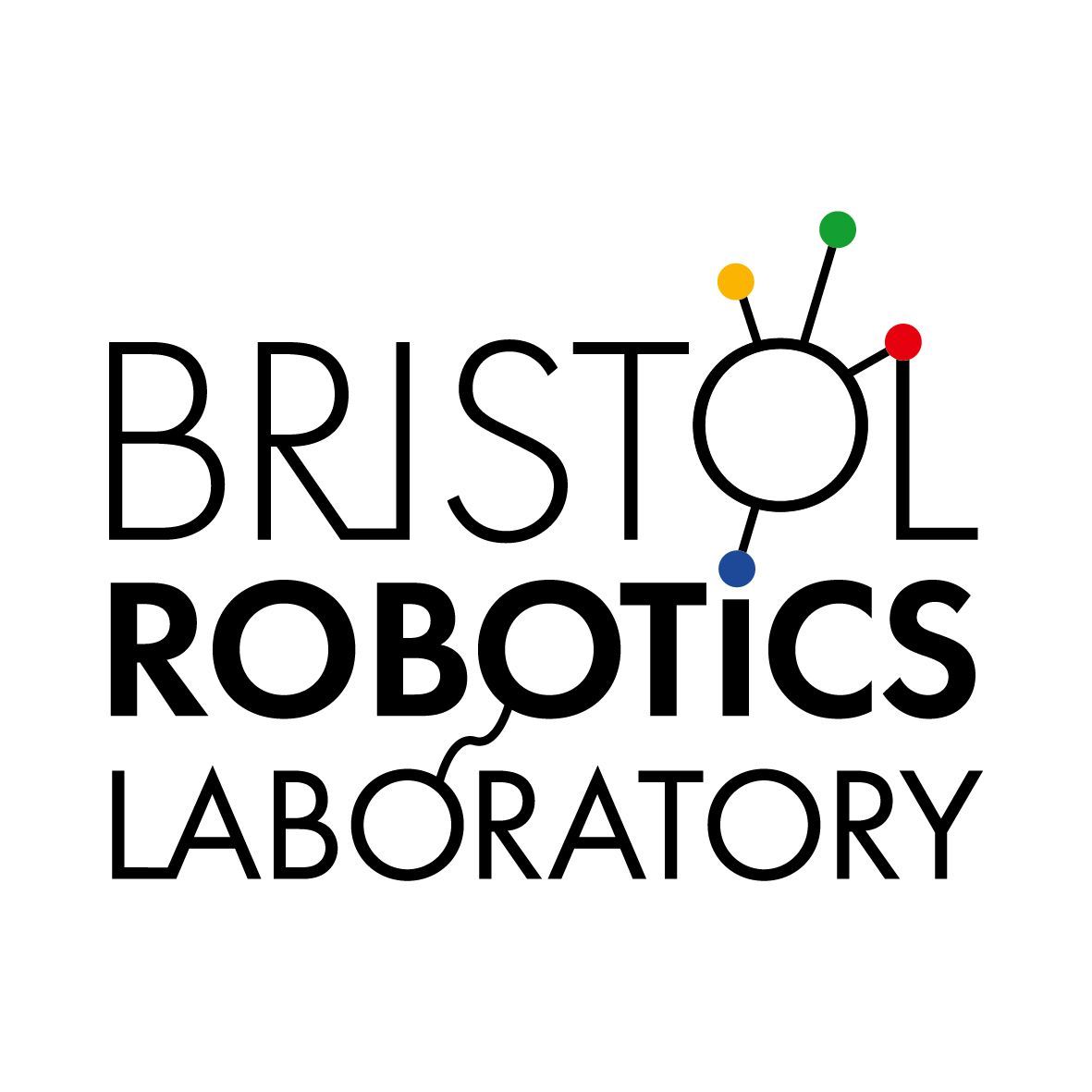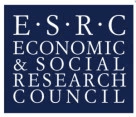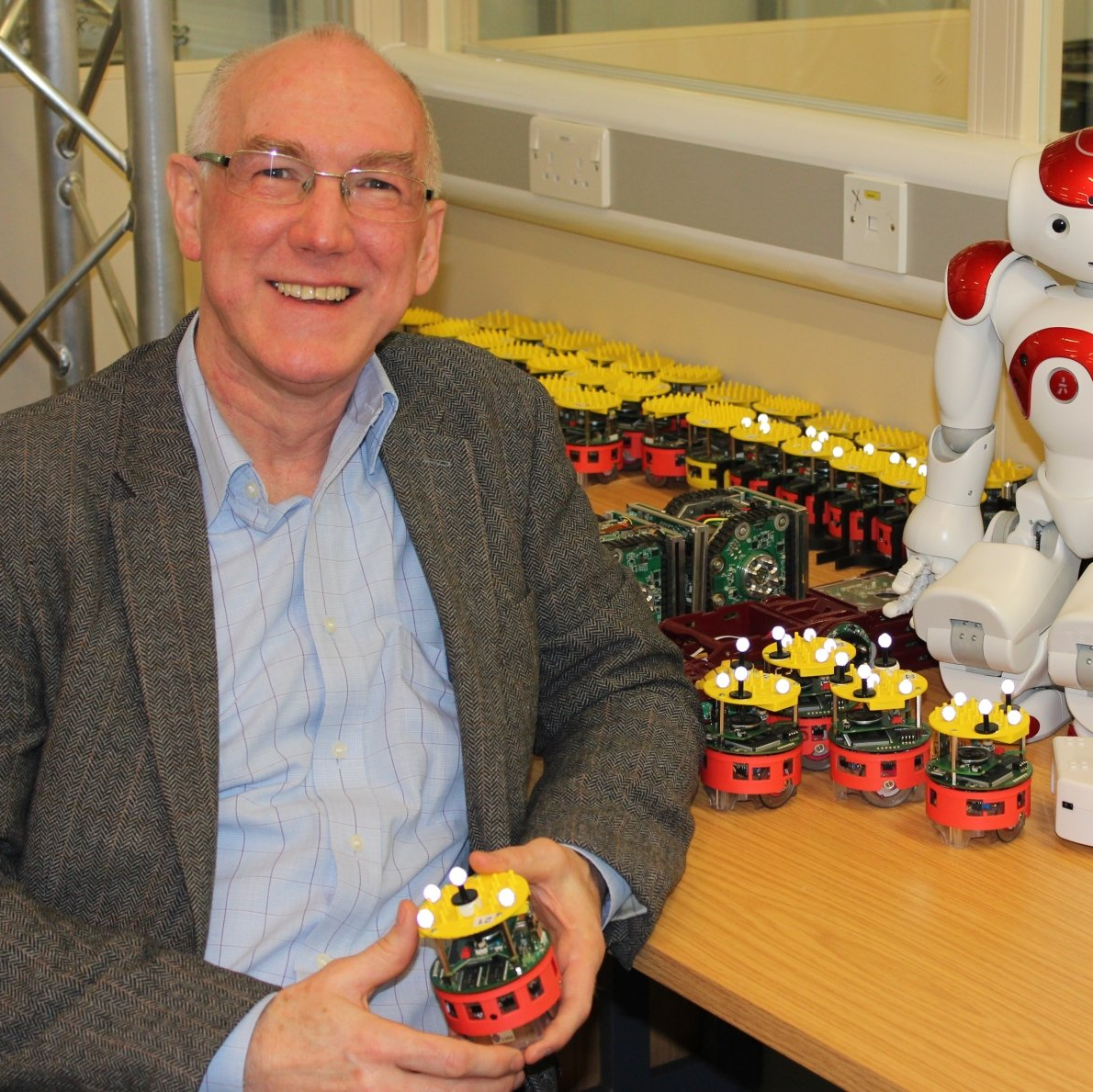Robot Ethics
The so-called 4th industrial revolution and its economic and societal implications is no longer an academic concern, but has become a matter for political as well as a public debate.
The so-called 4th industrial revolution and its economic and societal implications is no longer an academic concern, but has become a matter for political as well as a public debate.
Background
The Fourth Industrial Revolution - characterised as the convergence of robotics, AI, autonomous systems and information technology, or cyber-physical systems - was the focus of the World Economic Forum, at Davos, in 2016.
In the US the White House initiated a series of public workshops on artificial intelligence (AI) and the creation of an interagency working group; the UK parliamentary select committee on Science and Technology commenced an Inquiry on Robotics and Artificial Intelligence, and the European Parliament committee for legal affairs published a draft report with recommendations to the Commission on Civil Law Rules on Robotics.
Notably all of these initiatives express the need for serious consideration of the ethical and societal implications. Machine ethics has been transformed from a niche area of concern of a few engineers, philosophers and law academics, to an international debate.
In this theme we are interested in both robot ethics and ethical robots. The former is broadly concerned with the ethical use of autonomous systems including standards and regulation - in a nutshell ethical governance, while the latter is concerned with how autonomous systems can themselves be ethical, i.e. be imbued with ethical values. Both are of critical importance.
Ethical governance is needed in order to develop standards that allow us to transparently and robustly assure the safety of autonomous systems and hence build public trust and confidence. Ethical autonomous systems are needed because, inevitably, near future systems are moral agents; consider driverless cars, or medical diagnosis AIs, both of which will need to make choices with ethical consequences.
National and International Engagement with Robotics and AI Ethics
Theme members are involved in the following:
British Standards Institute committee AMT/00-/02: Robots and robotic devices
The IEEE Global Initiative on the Ethical design of Artificial Intelligence and Autonomous Systems
The World Economic Forum Global AI Council
Institute for Ethical AI in Education
The IEEE Global Initiative on the Ethical design of Artificial Intelligence and Autonomous Systems
The World Economic Forum Global AI Council
Institute for Ethical AI in Education
The lab also contributed to the 2016 UK Parliamentary Science and Technology Parliamentary Inquiry on Robotics and Artificial Intelligence, in the written evidence submitted by the EPSRC UK RAS Network, and by Alan Winfield.
Alan Winfield also gave oral evidence to the 2017 Lords Select committee inquiry on Robotics and AI.
See the final report here.
Current Projects
Responsible Robotics
RoboTIPS: Developing Responsible Robots for the Digital Economy
is a new five-year EPSRC funded project. The overall aim of the project is to embed responsible innovation (RI) into technology developers' practices and to create positive cases of RI in action. This requires not only wider stakeholder engagement and anticipating negative and positive outcomes of technological innovation; it also requires using and translating that information to influence the actual development of the technology. It will also require a radical and novel approach to governance of technological innovations.
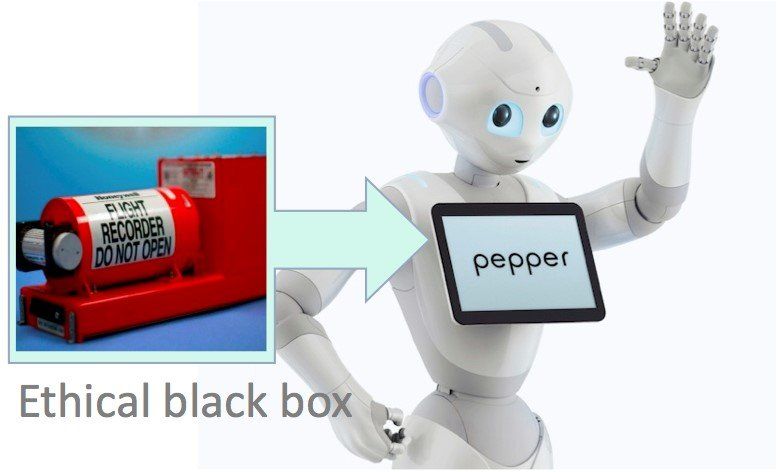
The project will focus on the domain of social robots, those that interact with people and make decisions about what to do on their own accord. Because they make their own decisions in order to perform actions, we need to be able to recover what they did and why they did it when things seem to go wrong. We will develop an ethical black box (EBB) through which the social robot will be able to explain its behaviour in simple and understandable ways. The development of the EBB will be an example of responsible innovation. We will test this out in (staged) accident investigations as a social process, in 3 different study domains: assisted living robots, robot toys and driverless cars.
Project funded by:

Industry partners include: Consequential Robotics, Designability, NNT Group, Open Bionics and Reach Robotics.
The project is led by Prof Marina Jirotka, University of Oxford.
For more information contact Alan Winfield: alan.winfield@brl.ac.uk
Driverless Futures?
Driverless Futures is a new two-year ESRC funded project investigating the societal, policy and governance issues of autonomous vehicles.
The history of science and technology tells us that paradigm shifts and industrial revolutions are rarely smooth and never just about science and technology. Policy reports have already identified the potential for self-driving cars to worsen inequalities by taking away millions of driving jobs. The development of the technology is not pre-ordained, nor will it be unproblematic. As self-driving cars encounter pedestrians and other vehicles on the road, new questions of responsibility come to the fore.
We should ask who is driving innovation. Are we ready to hand over control of our cars and our futures to the developers of self-driving cars? Can we anticipate the politics of self-driving cars?
How should we imagine alternative futures? What do members of the public think? How should new technologies be governed?
The project is led by Dr Jack Stilgoe UCL, and UWE co-investigators are Graham Parkhurst and Alan Winfield.
For more information see
https://driverless-futures.com/ or contact Alan Winfield:
alan.winfield@brl.ac.uk
Project News
Driverless Futures will be launched at Nesta from 17.30-19.30 on 4th April 2019.
If you would like to come to the event, please register here.
Past Projects
Verifiable Autonomy

In the next 20 years, we expect to see autonomous vehicles, aircraft, robots, devices, swarms, and software, all of which will (and must) be able to make their own decisions without human intervention. This EPSRC funded project is concerned with building autonomous systems that are verifiably correct. It is a joint project with Liverpool (lead) and Sheffield, and the BRL contribution is to develop and build robots that can behave ethically.
For further information see the project website http://wordpress.csc.liv.ac.uk/va/
and Alan Winfield project blogposts here
